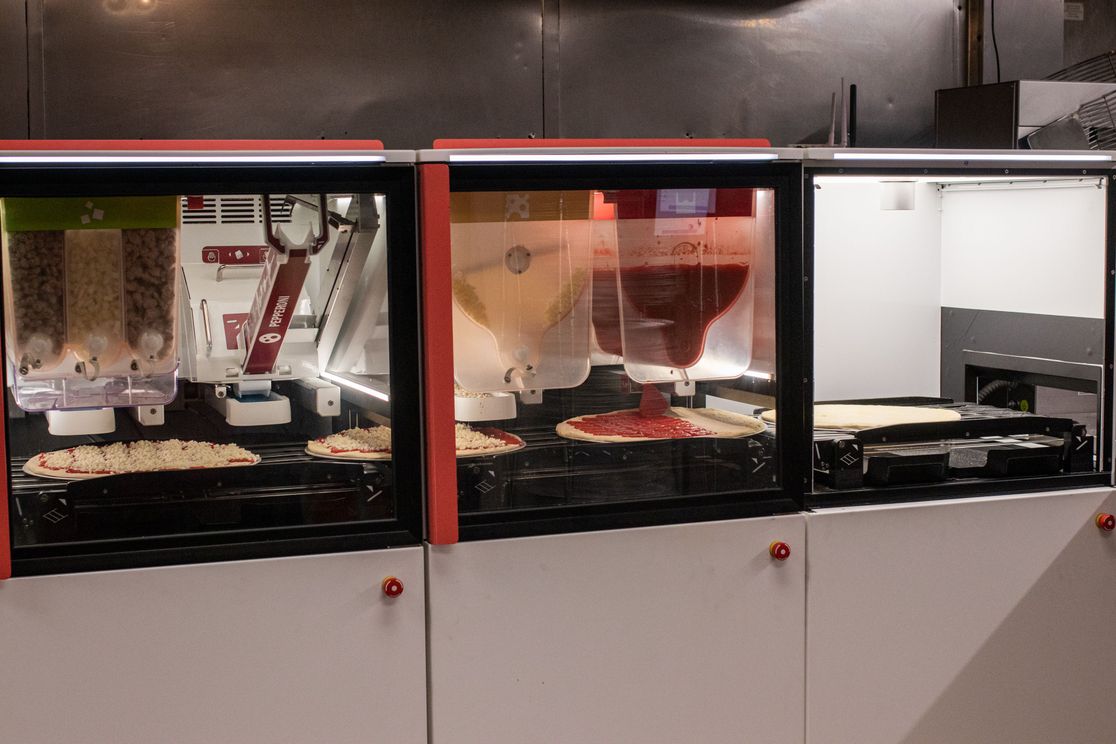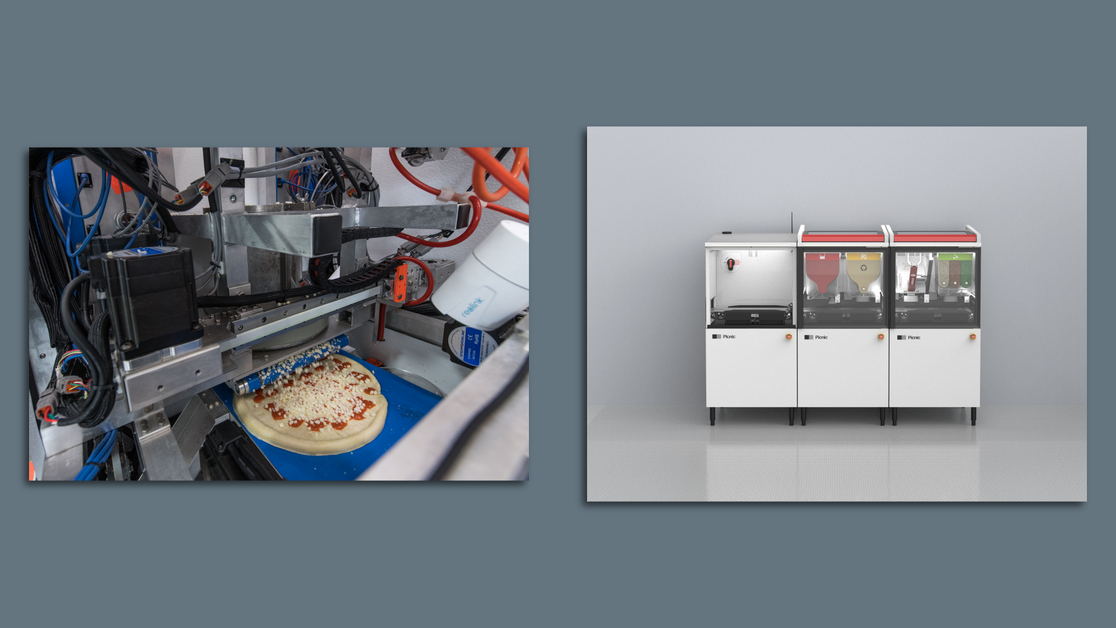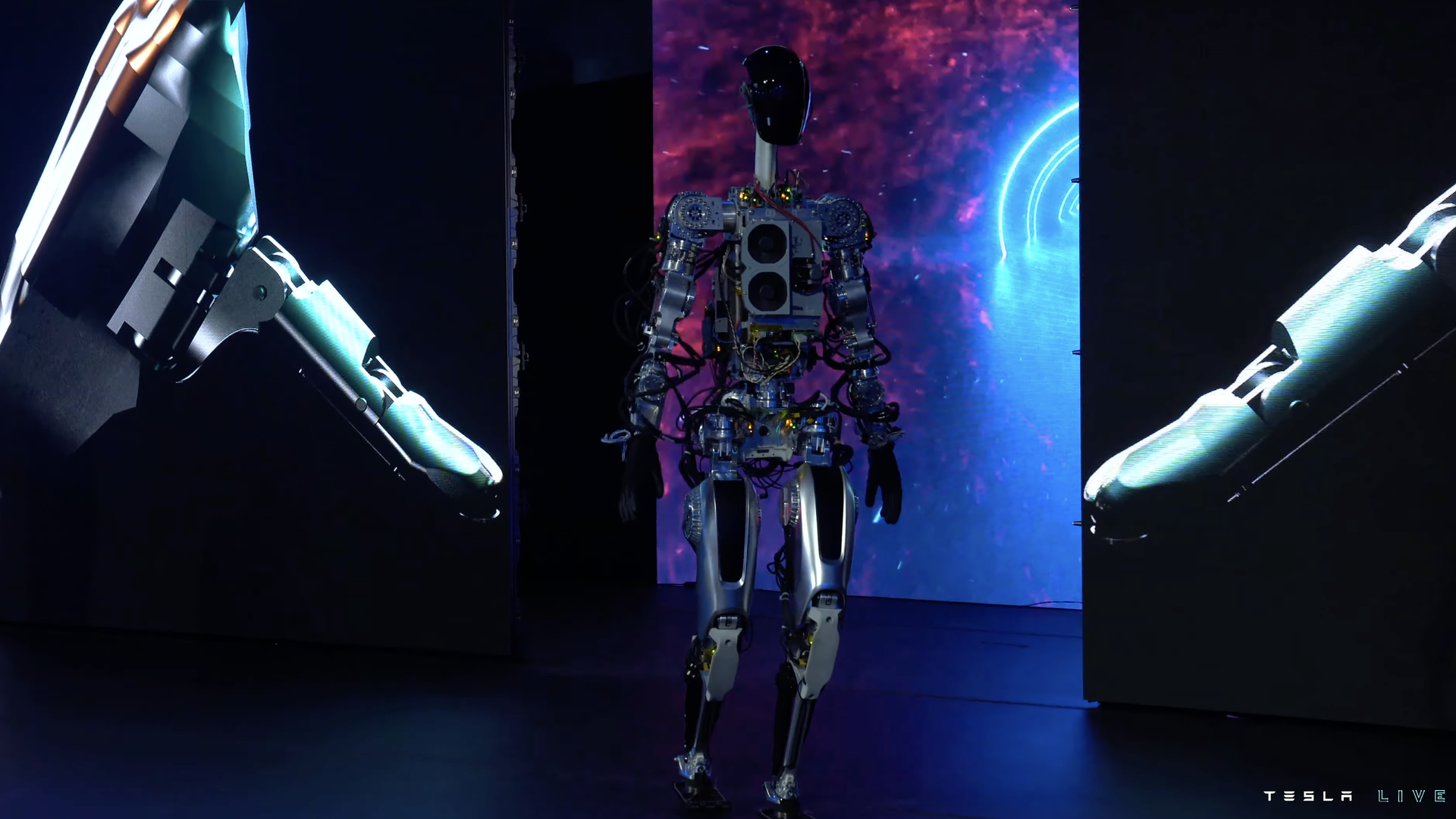| Artificial intelligence is taking the pizza business by storm, with a host of startups introducing machines that churn out pies faster and cheaper than humans, Jennifer A. Kingson reports. Why it matters: While robots are making steady inroads in the restaurant industry, pizza is the place where automation may make its earliest and most transformative mark. Driving the news: Some of the brightest minds in engineering have turned their attention to pizza, building contraptions that can stretch dough, apply tomato sauce, and sprinkle cheese and toppings without human intervention. - Stellar Pizza, founded by a former SpaceX rocket scientist, will open this month in Los Angeles with a fleet of trucks staffed by robotic pizza chefs (and human drivers).
- PizzaHQ in New Jersey has converted a traditional pizzeria into a robotic one, with plans to expand.
- Picnic Works is a tech company that leases the "Picnic Pizza Station," a modular assembly line that can make up to 100 pizzas an hour.
What they're saying: "Nobody in food service has enough workers," says Clayton Wood, CEO of Picnic Works, whose machines have been used by Domino's, SeaWorld and Chartwells, the school cafeteria vendor. - Another problem robots solve? Consistency. "We're making a better pizza because it's made to the recipe," Wood tells Axios.
A robot assembles the pies at PizzaHQ, which uses a machine from Picnic Works. Photo courtesy of PizzaHQ Getting robots to make pizza is harder than it looks. Frozen pizzas are routinely assembled in a factory, but the process doesn't translate easily to a restaurant or food truck. - "I've got a team of 30 SpaceX engineers designing the machinery, and it's actually really hard," Benson Tsai, Stellar Pizza's co-founder and CEO, tells Axios.
- His company's machines take pre-formed dough balls, stretch them out, and add sauce, cheese and toppings.
At left, the robotic pizza-maker from Stellar Pizza, which is designed to be placed in a truck. At right, the assembly line from Picnic Works is meant to get a pie ready for the oven. Photos courtesy of Stellar Pizza and Picnic Works Between the lines: While some craftsmanship may be lost when robotic hands replace fleshly ones, there are plenty of advantages — like the ability to produce mass quantities at low prices. - "We actually can make a fresher pizza because we're trying to shrink these giant pizza factories into little boxes," said Tsai.
Yes, but: There's already been one noteworthy flop: Zume Pizza, which raised $375 million from SoftBank, shuttered its robot-crafted pie service in 2020 amid "complaints about cheese dripping everywhere [and] paltry little sauce on the pies," per Input magazine. - Plus, topping options are limited when a robot wears the apron.
- "When you look at things like broccoli, it's tough to put in there," said PizzaHQ co-founder Jason Udrija. "If you look at olives — olives are very wet, and it's hard. It doesn't work well with the machine."
The bottom line: While robot-made pies may one day be the norm, they'll likely face consumer skepticism for now. - "One of the speed bumps is really going to be getting people used to pizza made by a robot," Udrija said. "There's a lot of pushback on, 'Hey, that product can't be good.'"
- But, he predicts: "20 years from now, all pizza is going to be made like this."
Share this story. | 











No comments:
Post a Comment